Happy Sunday! Here’s hoping you were able to celebrate Independence Day. For those still in the patriotic spirit and looking for something more to read, the TMD crew had some great recommendations on Thursday.
Debate over the right mix of religion and politics, or religion and civic life more generally, has always been fraught. In the U.S. some groups in recent decades have advocated for a naked public square, devoid of religion or religious references. Others have argued for the opposite, a public square and public laws saturated with biblical influence.
Those debates continue, but the landscape has changed in important ways over the last decade. For one, groups like the so-called “New Atheists” don’t have quite the mouthpieces they once did (especially since the death of Christopher Hitchens), which the conversion of writer Ayaan Hirsi Ali to Christianity compounds. Conversely, many who advocate for a more overt religious influence on our civic life have broken into a couple of different camps: Catholic integralists (made up primarily of Catholics, as one would guess) and national conservatives (which is theologically broader and includes several notable Catholics, Protestants, and Jews). Intermixed is the Christian nationalist movement, the definition of which can be elusive.
Whichever way those groups may splinter internally, generally one side claims a secularized Enlightenment is the true and correct wellspring the American Founders drew from when envisioning the country, while the other insists a more explicit (perhaps coerced) return to a Judeo-Christian ethic is the only way to be faithful to the American founding.
In today’s Dispatch Faith, Cato Institute scholar Mustafa Akyol has a word for both groups. Mustafa, who himself is Muslim, not only sees hope for America in both encouraging public religious thought and in maintaining healthy boundaries between church and state. He also sees hope for the contemporary Islamic world, if it can follow the example set by America’s Founders.
Note: You’re receiving Dispatch Faith because you were formerly a reader of David French’s French Press. We hope you’re enjoying the new offering and will consider forwarding it to others. And as always, let us know how we can make the newsletter better; we plan to experiment with different formats in the coming weeks and months.
Mustafa Akyol: We Don’t Have to Choose Between the Enlightenment and Religion
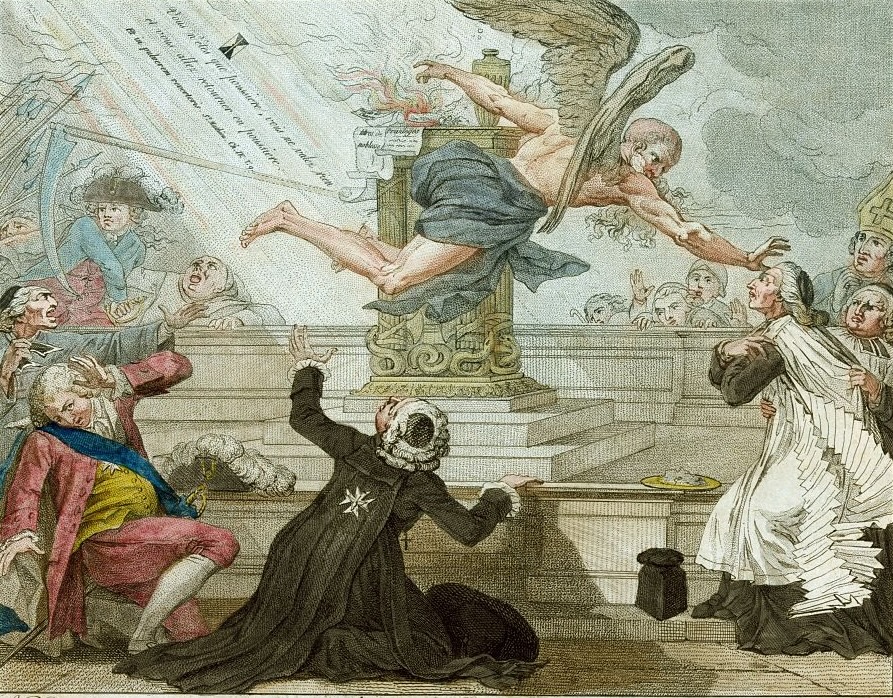
What is wrong with the West today?
This question has become unexpectedly common in recent years. It resonates even among those who used to believe that Western civilization reached the apex of human history with its liberal democracy, only wondering whether other civilizations would ever get there as well. Instead, some now wonder whether liberal democracy will survive in the West itself, as it is boldly challenged by the illiberalism of the far right and the far left, neither of which have much sympathy for free speech, free markets, rule of law, or religious liberty.
But what accounts for this turbulence in Western societies? Is the West losing something that used to make it free, reasonable, and prosperous?
While answers to these questions vary, two interesting ones tie the rise of illiberalism to religion, though in exactly opposite directions: One of them sees the problem in the rapid decline of religion, in particular Christianity, which has led to loss of meaning in Western societies, only to be replaced with ersatz religions like “wokeism” and militant nationalism. This is the view of the “New Theists,” who want to revive Western Christianity, whose social influence they appreciate, even if they may not really believe in its theological doctrines. (I, too, see some merit in their arguments, as I have written before.)
On the other side is the opposite camp, the “New Atheists” and other secularists, who see the problem not in the decline of religion but rather its excess. What the West is dangerously losing, in their view, is not any ancient religion but the modern Enlightenment, which they see as the triumph of secular reason over dogmatic faith.
A recent example was writer Matt Johnson’s notable piece for Persuasion, “The God Divide Within the Heterodox Community.” In it he claimed, “No, we don’t need religion to ‘save the West.’” Western nations, such as the United States, were made great by “robust legal protections for freedom of conscience and expression,” he wrote, which only came out of “the Enlightenment tradition of resistance to Christian domination.” Then he noted certain Enlightenment thinkers—Voltaire, Baruch de Spinoza, and David Hume—all of whom had challenged the traditional beliefs of Christianity and Judaism, and who could even appear as outright anti-religious. Voltaire, especially, was unabashed in his opposition to Christianity, which he defined as “the most ridiculous, the most absurd and bloody religion that has ever infected the world.”
When I read Johnson’s piece, I thought he had a point: The Enlightenment is really the foundation of modern Western civilization and many of its pillars, such as freedom of speech and religion, that many of us, including newcomers to the West such as myself, keep enjoying. However, I also thought that Johnson highlighted only the anti-religious strain within the Enlightenment, which was far from being the whole story. It was not even the best side of the story.
Because the Enlightenment also had a religion-friendly strain, represented not by Voltaire and Spinoza but by John Locke and Moses Mendelssohn. The latter thinkers were genuine believers who, far from abandoning or attacking their religious convictions, reconciled them with reason and freedom. As historian David Sorkin shows in his remarkable book, The Religious Enlightenment, this much-neglected side of that pivotal epoch included many Protestants, Jews, and Catholics who harmonized their religion with “reasonableness, toleration and natural law.”
Moreover, one could well argue that this religion-friendly side of the Enlightenment had better consequences: In France, the historical homeland of Voltaire’s anti-religious philosophy, that intellectual movement led to blood-soaked revolution, which produced worse-than-before oppressors like the Jacobins and left a legacy of illiberal secularism that has often restrained religious liberty, by insisting that religion and its symbols should be “absent from the public sphere.”
In contrast, the Anglo-Saxon way has been milder, as the late historian Gertrude Himmelfarb once explained in The Roads to Modernity: The British, French, and American Enlightenments. While the French political tradition has been excessively preoccupied with reason, she argued, the British and American ones focused on individual liberty, while also extolling social virtues promoted by religion: compassion, benevolence, and sympathy. No wonder neither of these nations saw a violent confrontation over religion akin to the French Revolution and allowed higher levels of religious, political, and economic freedom.
Fast forward to today. I believe it is the heritage of this “religious Enlightenment” that the West—especially the United States—may be losing at its own peril. Signs of the times include Catholic integralists who reject the separation of church and state, as well as various other “post-liberal” Christians who shun classical liberalism and promote a more “state-friendly ideology.” Among other conservatives, too, there are those who depict “a cartoon version of Locke,” and “a cartoon version of the Enlightenment,” who signal “The Return of the Anti-Enlightenment.”
On the other side, advocates of the Enlightenment like Johnson position it against religion, deepening the gap between them and the believers, while unknowingly undermining the very bonds of society. (For men do not live by reason and freedom alone, but also by spirit, hope, family, and community.) Worse, postmodern leftists renounce the Enlightenment—in fact, religions, too—as misdeeds of “dead white men,” promising little to humanity other than endless deconstruction of all values, except their own permanent anger, resentment, and domination.
Therefore, as a Muslim from Turkey who now lives in America, I would call on Americans, and Westerners broadly, to recall and revive their religious Enlightenment. It was a historic step forward that saved Christendom from its millenium-old ills such as religious intolerance, coercion, and violence, and helped its better values shine. It also built pluralistic nations that offered safe homes to peoples of all religious persuasions, from Jews to Muslims, from Hindus to atheists. It is a precious legacy that should not be squandered.
Moreover, again as a Muslim, there is something else about the religious Enlightenment that I highly value: It is the best source of inspiration for the Islamic civilization to move forward from its current state of affairs.
To be fair and precise, the Islamic civilization is a very complex and diverse part of the world, with varying political, social, and religious structures. Some Muslim-majority nations are doing much better than others, and some, such as Bosnia-Herzegovina and Albania, are as free as most other European states. However, doctrinally, many mainstream religious authorities in Islam have not fully embraced freedom of religion and expression, equality under the law, and various human rights as they are defined in the modern world. No wonder quite a few “Islamic” states criminalize apostasy or blasphemy, silence heresy or infidelity, and use state authority to impose piety—the very problems addressed by Enlightenment thinkers such as Locke and Mendelssohn, or the American theologian Roger Williams, an early advocate of the separation of church and state.
That is why the religious Enlightenment could be an example to follow for some Muslims. And it really did, beginning in the 19th century, leading to liberal reforms in the Ottoman Empire and the “liberal age” in Arabic thought, as demonstrated by the late great historian Albert Hourani. But this promising era was curtailed in the early 20th century, as the inevitable resentment against European colonialism dominated Muslim thinking. Moreover, in Muslim nations that kept their independence, such as Turkey and Iran, a French-style anti-religious Enlightenment gained power, initiating a prolonged culture war with religion. (And no wonder, in both nations, religion came back with a vengeance, although with considerable difference in severity.)
Nevertheless, Muslims familiar with the religious Enlightenment—and its most remarkable showcase, the United States—keep appreciating their contributions. This example is still sparking intra-Muslim conversations (where I sometimes take a part) on whether the Islamic civilization should follow a similar path of harmonizing religion with freedom.
Thus it is crucial that the religious Enlightenment and its historical contributions survive. It would be good for America, and good for the broader West. It would be even good for Islam—which, with its Abrahamic roots, is not a civilization totally alien to the West, as many wrongly believe. It is rather a similar civilization at a different phase. And it could make use of good examples as well as bad ones.
More Sunday Reads
- To continue the theme of this week’s Dispatch Faith essay, here’s a piece from Steven K. Green at The Conversation examining the relationship between and beliefs of two Founders, Thomas Jefferson and James Madison, on religious liberty. “Religious matters were never far from their minds,” Green writes. “For instance, in Madison and Jefferson’s exchanges discussing the need for a bill of rights, freedom of conscience was invariably at the top of the list. Both were convinced that government should avoid supporting religion, even if no particular religion was given preference. They also insisted that people should have broad religious freedoms. These views were clearly on the vanguard, but other religious rationalists and religious dissenters also advocated a comprehensive understanding of religious freedom. Both men were committed to advancing religious freedom because they saw it as deeply entwined with freedom of inquiry and conscience.”
- A Brooklyn neighborhood has become “thick with jazz musicians” thanks to Jewish players who, according to this story at Forward from Jon Kalish, began efforts to give kids free music lessons and support musicians who had no gigs to play during the COVID-19 pandemic. “‘I totally believe in tikkun olam,’ jazz saxophonist Roy Nathanson told me, referring to the Jewish concept of repairing the world. ‘I’m very connected to the idea of prayer and religion healing and in this world, it’s got to be connected to social justice.’”
A Good Word
For Religion News Service, Priyadarshini Sen writes about Indian activists who use safehouses and other means to protect couples in interfaith—and mixed-caste—marriages from honor killings: “In many cases, couples are abandoned by their families and communities for years. Rohit, who’s from a marginalized Hindu tribe, fell in love with the petite Ashavari from a high-caste Hindu family at a law college in the Satara district of Maharashtra, only to realize that Ashavari’s upper-caste family would never accept him. Early last year, they eloped, married at a temple in an adjacent city and pledged loyalties. ‘We don’t go out much and have been abandoned by friends and family because of our decision,’ said Ashavari. ‘My family has even threatened to kill Rohit, but we’ll not cave.’”


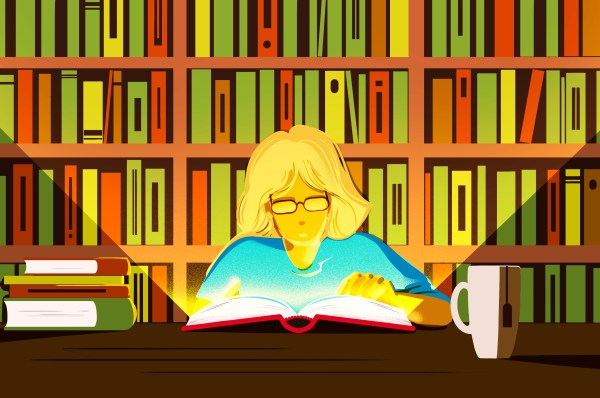
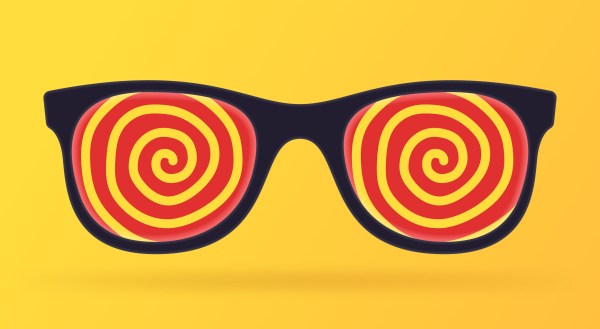
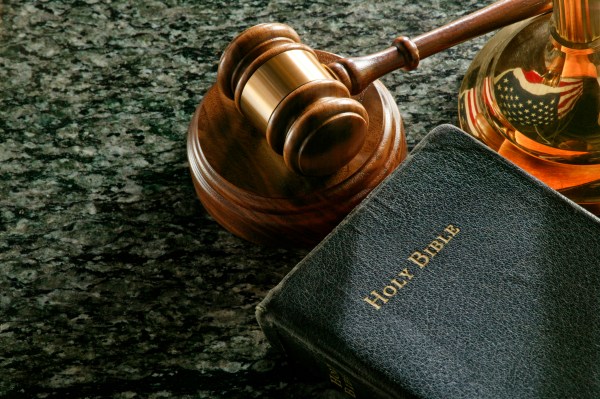

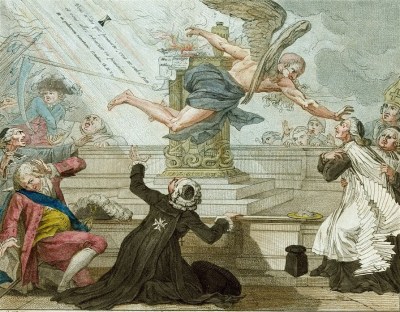
Please note that we at The Dispatch hold ourselves, our work, and our commenters to a higher standard than other places on the internet. We welcome comments that foster genuine debate or discussion—including comments critical of us or our work—but responses that include ad hominem attacks on fellow Dispatch members or are intended to stoke fear and anger may be moderated.
With your membership, you only have the ability to comment on The Morning Dispatch articles. Consider upgrading to join the conversation everywhere.